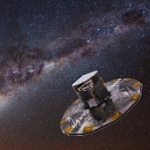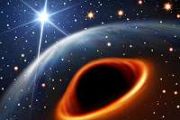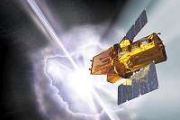Displaying items by tag: Gaia space telescope
Gaia space observatory
Gaia is a space observatory to be launched by the European Space Agency (ESA) in November 2013.
The mission aims to compile a 3D space catalogue of approximately 1 billion stars, or roughly 1% of stars in the Milky Way. Successor to the Hipparcos mission, it is part of ESA's Horizon 2000 Plus long-term scientific program. Gaia will monitor each of its target stars about 70 times to a magnitude 20 over a period of 5 years. Its objectives comprise:
- determining the positions, distances, and annual proper motions of 1 billion stars
- detection of tens of thousands of extra-solar planetary systems
- capacity to discover Apohele asteroids with orbits that lie between Earth and the Sun, a region that is difficult for Earth-based telescopes to monitor since this region is only in the sky during or near the daytime
- detection of up to 500,000 distant quasars
- more accurate tests of Albert Einstein's general relativity theory
Gaia will create an extremely precise three-dimensional map of stars throughout our Milky Way galaxy and beyond, and map their motions which encode the origin and subsequent evolution of the Milky Way.





























